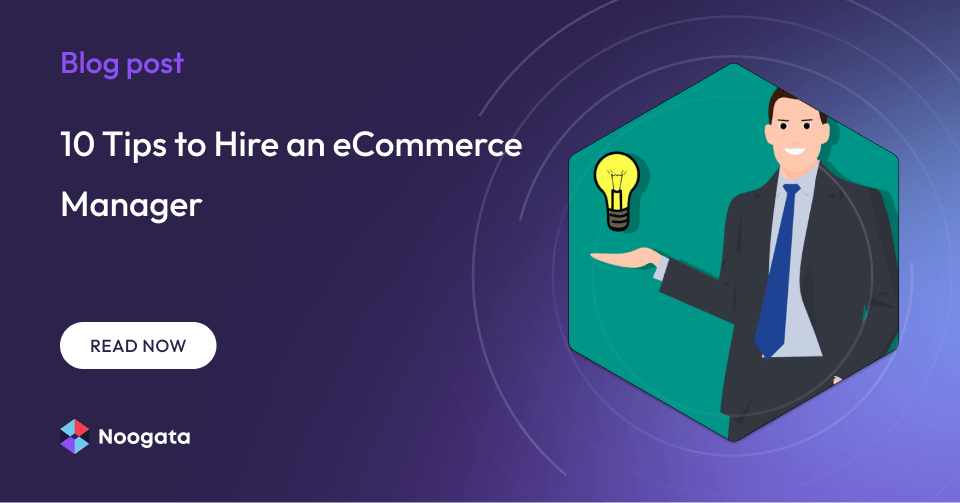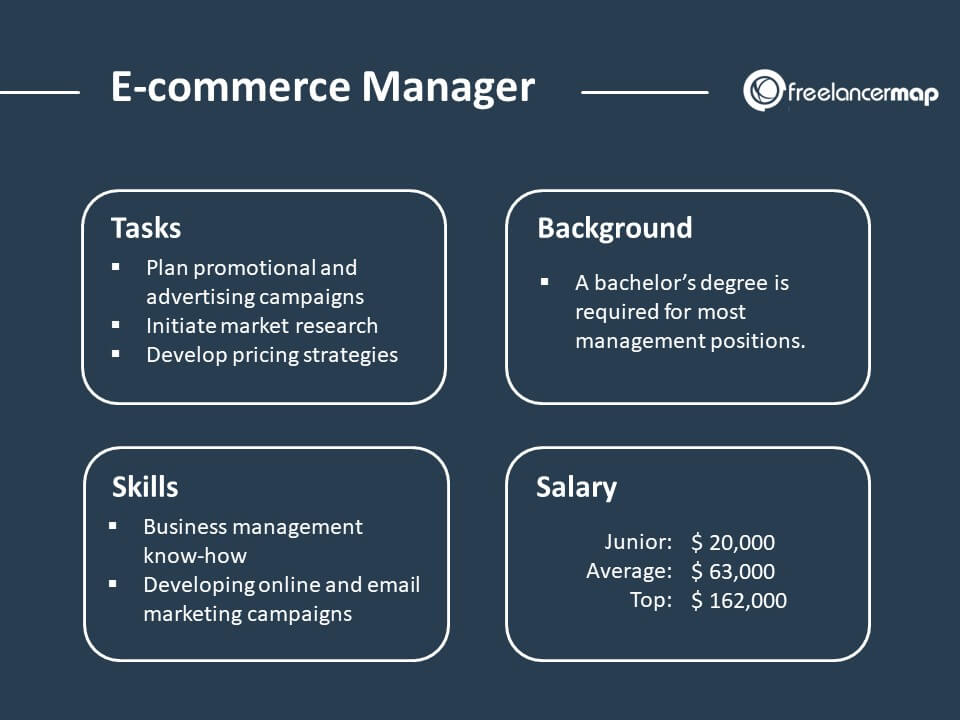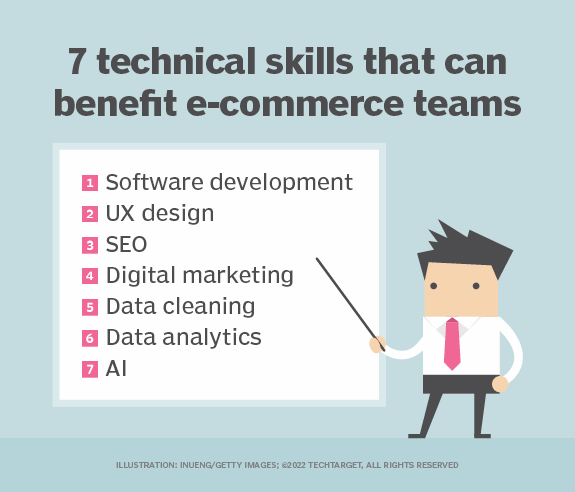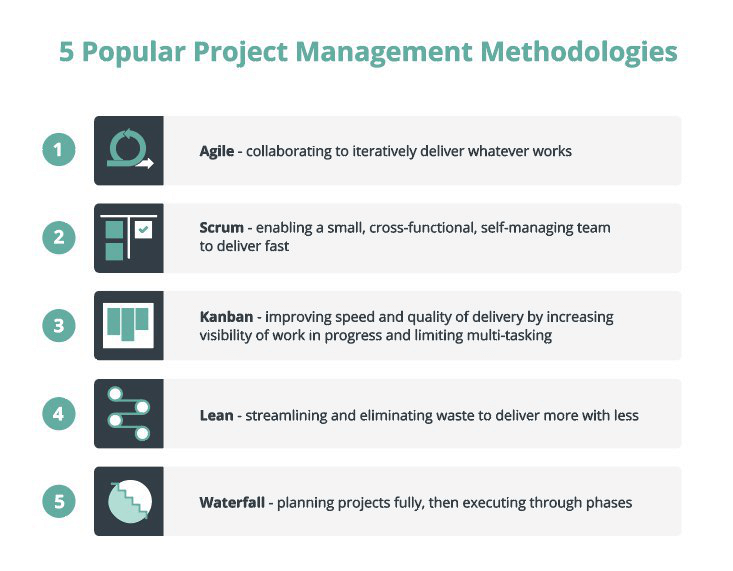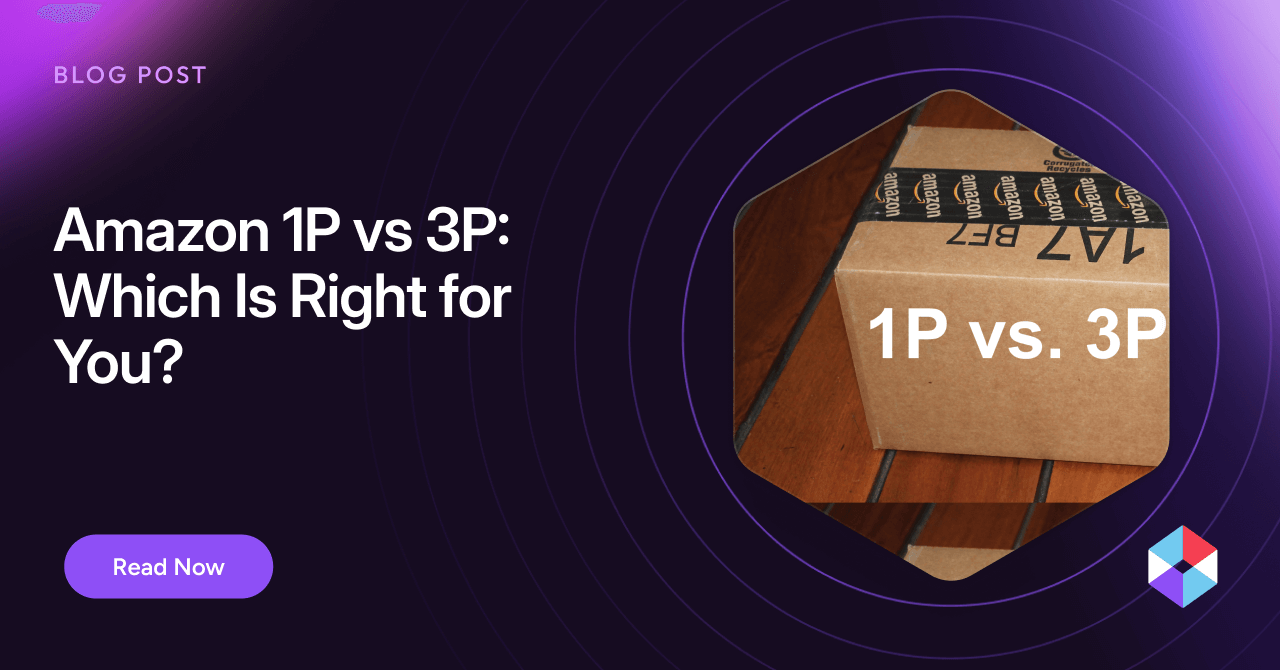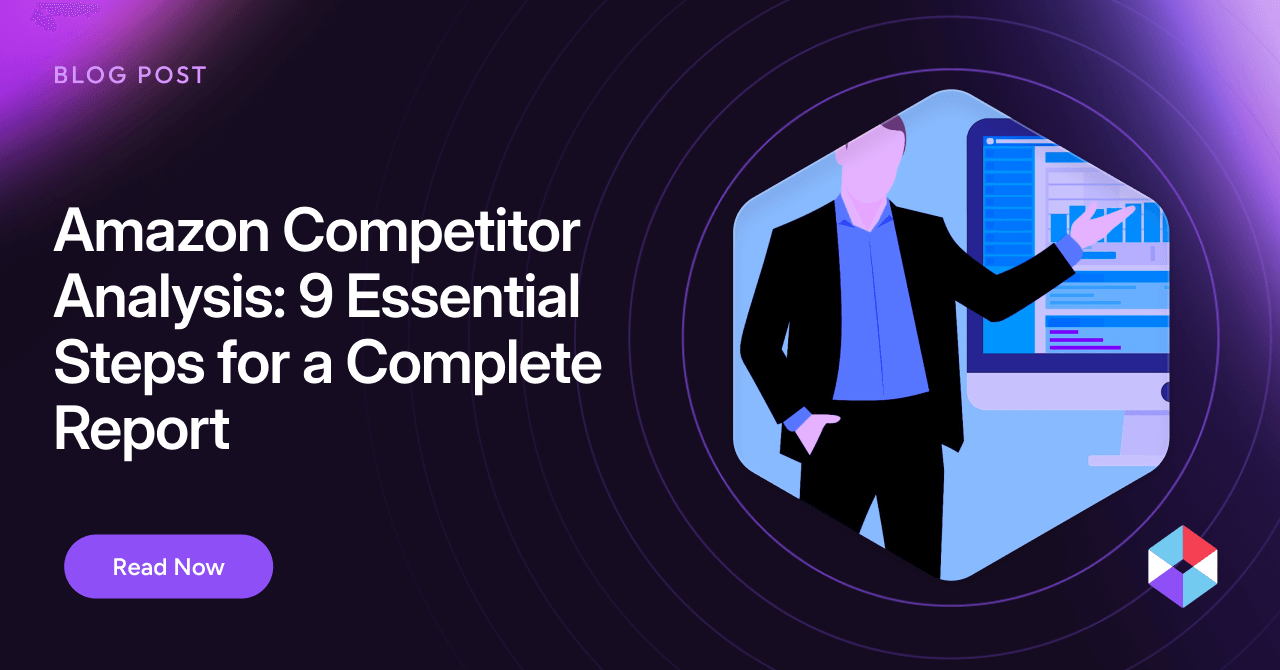To get ahead in the ultra-competitive world of eCommerce, sometimes the difference between winning and losing is your team. If you knew hiring the right eCommerce manager would cost around $100K in salary—but you’d knock out the competition and gain back those costs quickly—you’d do whatever it takes to find them, wouldn’t you?
With eCommerce sales in the U.S. tripling in the last five years and more than 75% of businesses reporting that they will implement AI into their daily workflow, how can you ensure that your next eCommerce manager will have what it takes to lead your brand to victory?
In this post, we’ll look deeper into the role of eCommerce managers, and provide you with ten tips on how to hire the right one for your organization.
What does an eCommerce manager do, exactly?
An eCommerce manager is a professional who oversees and manages a company’s online sales operations. Their primary focus is on the eCommerce website and other digital platforms where products or services are sold. They handle website management, product listings, digital marketing, customer experience, analytics, and inventory management tasks. This role has become increasingly important in the digital age because online sales have become a significant business revenue source.
The eCommerce manager’s responsibilities are crucial because:
- They play a vital role in revenue generation, as effective management can boost online sales and contribute significantly to a company’s financial success.
- Having a strong online presence is critical in today’s competitive landscape. The eCommerce manager ensures that the company’s digital platforms are well-maintained and optimized to attract and retain customers.
- They focus on providing a seamless and user-friendly shopping experience, enhancing customer satisfaction, and fostering long-term customer loyalty.
- The eCommerce manager’s data analysis skills enable data-driven decision-making, leading to continuous improvements and adaptability to changing market trends and consumer preferences.
Ecommerce managers range from strategic advisers and team supervisors to experts on technical aspects like eCommerce store design and online marketing campaigns. Regardless of an eCommerce manager’s specific title and set of responsibilities, they all have one role in common: to drive online traffic and sales.
What skills should an eCommerce manager have?
Ecommerce managers must possess a wide range of skills, including:
Digital Marketing
These skills encompass everything from on-page and Amazon marketplace SEO, launching and managing multi-channel ad campaigns, managing the digital marketing plan and budget and strategy, and paid social media and email marketing.
Experience with Major eCommerce Marketplaces and Platforms
Ideally, they’ve built their own store from the ground up in one of the eCommerce platforms, and they can quickly create a new product page in marketplaces like Amazon or Shopify.
Mastery of Data and Analytics
Beyond Google Analytics and A/B testing, they must have proven experience analyzing sales data, optimizing conversions, and reducing churn.
Market Research
Not only must they be able to determine who the target audience is and how your product suits their needs, but they should identify your competitors and how to market your products against them.
10 Tips to Hire an eCommerce Manager
When hiring your next eCommerce manager, consider the following questions and their answers:
1. What are your biggest pain points?
Whether your eCommerce store growth is experiencing start-up growth or scale-up growth, you’ll want to focus your efforts on solving your brand’s biggest struggles. Review your daily activities and pay attention to where you put the most of your efforts. Are you spending most of your day on store operations such as merchandising? SEO to drive campaigns? Or do you need a leader to manage and motivate your eCommerce team? Understanding this should help you identify what you need most.
2. What is the title of the eCommerce manager you are looking for?
Once you’ve narrowed down what you’d like to achieve, you should be able to specify an eCommerce manager title. For example, is your main goal to plan, develop and launch your new product line? Then you’ll want to look for an eCommerce product manager. Or are you aiming to improve your social media and email marketing campaigns? You’ll need to search for a web marketing manager instead.
3. Do they communicate a clear vision?
Your future eCommerce manager’s vision should include proper goals and milestones with deliverables and deadlines without having unrealistic expectations. To get a sense of their vision for your store, ask them about their onboarding process for a new client or how they envision the first 30 days in a new job with you. What metrics, data, and KPIs would they focus on? How would they approach deadlines, and how have they planned and prioritized work in the past? How would they manage and grow an Amazon brand?
4. Are they aware of evolving trends in eCommerce AI technology?
Ecommerce AI is changing how things are done across the board. Consider product listings: New generative AI tools (such as ChatGPT) can generate eCommerce listings, brainstorm, and improve and update content at scale.
AI-powered eCommerce tools like Noogata go a step further, measuring your listing’s content quality in real-time by quantifying product performance against search terms, adding high-value terms, or removing ones that are no longer optimal. Ideal eCommerce manager candidates must understand what the latest AI tech can do and how to use it to optimize revenue.
5. Do they have advanced knowledge of data and analytics, and the platforms?
The right candidate should have experience using platforms such as Google Analytics, eCommerce dashboards, and advanced Excel skills. Most importantly, they should be able to translate high-volume data and analytics into insights to achieve your business goal at scale—or know how to use AI eCommerce platforms that do. This is possible with solutions such as Noogata, which leverages AI to uncover patterns, trends, and competitors far more granularly than humans.
To get a sense of their data and analytics skills, ask them to tell you about a time they were able to increase the loyalty of customers or customer acquisition (or any other important metric); and how they can ensure they don’t miss out on discovering new areas for growth.
6. How do they gauge customer experience?
One of the most important applications for data, analytics, and customer insights is enhancing the customer experience from the first moment they hear about your brand to their decision to purchase. Do they have practical applications of how they were able to improve the customer experience, such as analyzing support ticket trends or ensuring the customer journey was as frictionless as possible? Were they responsible for online campaigns that successfully up-sold and cross-sold customers?
7. Are they familiar with different eCommerce management methodologies?
If your eCommerce manager is working with your eCommerce development team, they’ll need to understand that the scrum methodology focuses on short sprints, which is great for flexibility and fast delivery. On the other hand, the waterfall method takes you from the beginning to the end of a project and is great for working with small teams. Which project management methodologies are your candidates most familiar with, and why (or why didn’t) they like working with them?
8. What’s their experience optimizing SEO in the major eCommerce marketplaces?
With more than 600 million products on Amazon, the right candidate must have a firm understanding of how to leverage SEO to optimize product listings, adjust metadata, create rich snippets, and be able to spot seasonal or new ahead of the competition. Do they know how to use solutions like Noogata’s Search Trendspotting, which delivers real-time insights on search analytics and competitive analytics so that you can dominate the digital shelf?
9. Does this candidate’s skill set, seniority and location suit your budget?
Considering these factors in relation to your budget is crucial when hiring an ecommerce manager. The right skill set ensures they can handle essential responsibilities, leading to increased productivity. Seniority aligns experience and expertise with your expectations and budget constraints. The candidate’s location impacts overall costs, with higher living costs potentially leading to increased salary demands. Adhering to your budget ensures financial sustainability and makes a well-informed decision that benefits your company’s success.
10. Where can I find the right candidate?
Would they be a consultant or be looking for full-time work? For instance, do you have professional contacts who would know eCommerce project managers? If not, can you make that connection now? Leverage online platforms such as Upwork, get references, put up ads on social media, and share them with your network.
How AI is Empowering the Role of eCommerce Managers
The role of eCommerce managers has always been challenging and exciting, but the explosion of AI tools has taken it to a new level. Whether highly experienced or junior, specialists or generalists, team leaders, or supporting roles, Noogata’s cutting-edge platform helps your eCommerce managers deliver actionable AI-powered insights to the entire team, elevating your brand and growing your business so that you can win against the competition.
Learn more about Noogata and how it can help you empower your eCommerce managers to increase sales and revenue.
